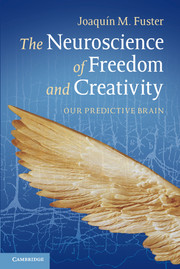1 - Introduction
Published online by Cambridge University Press: 05 June 2014
Summary
I am myself and my circumstance.
José Ortega y GassetFor as long as it can remember, the human race has been asking itself whether it is the master of its own destiny or, instead, whether human destiny is dictated by stars, deities, or genes. Today, few question anymore that the brain has a great deal to do with destiny. Modern neuroscience, however, is in the main deterministic and reductionistic, averse to the idea that there is a place in our brain for free will or any other sort of “counter-causal” entity.
Yet, thanks to recent advances in cognitive neuroscience, which is the neuroscience of knowledge, that panorama is about to change or is changing already. When it comes to the cognition of human action, both radical determinism and radical reductionism are no longer the beacons to guide our discourse. That does not mean that free will can already claim a sovereign place in the brain in the form of a distinct entity or set of neural mechanisms. What it does mean is that our scientific understanding of the human brain is opening up to accommodate liberty; that is, to accommodate our capacity to act as free causal agents, albeit within physical and ethical constraints.
- Type
- Chapter
- Information
- The Neuroscience of Freedom and CreativityOur Predictive Brain, pp. 1 - 27Publisher: Cambridge University PressPrint publication year: 2013

